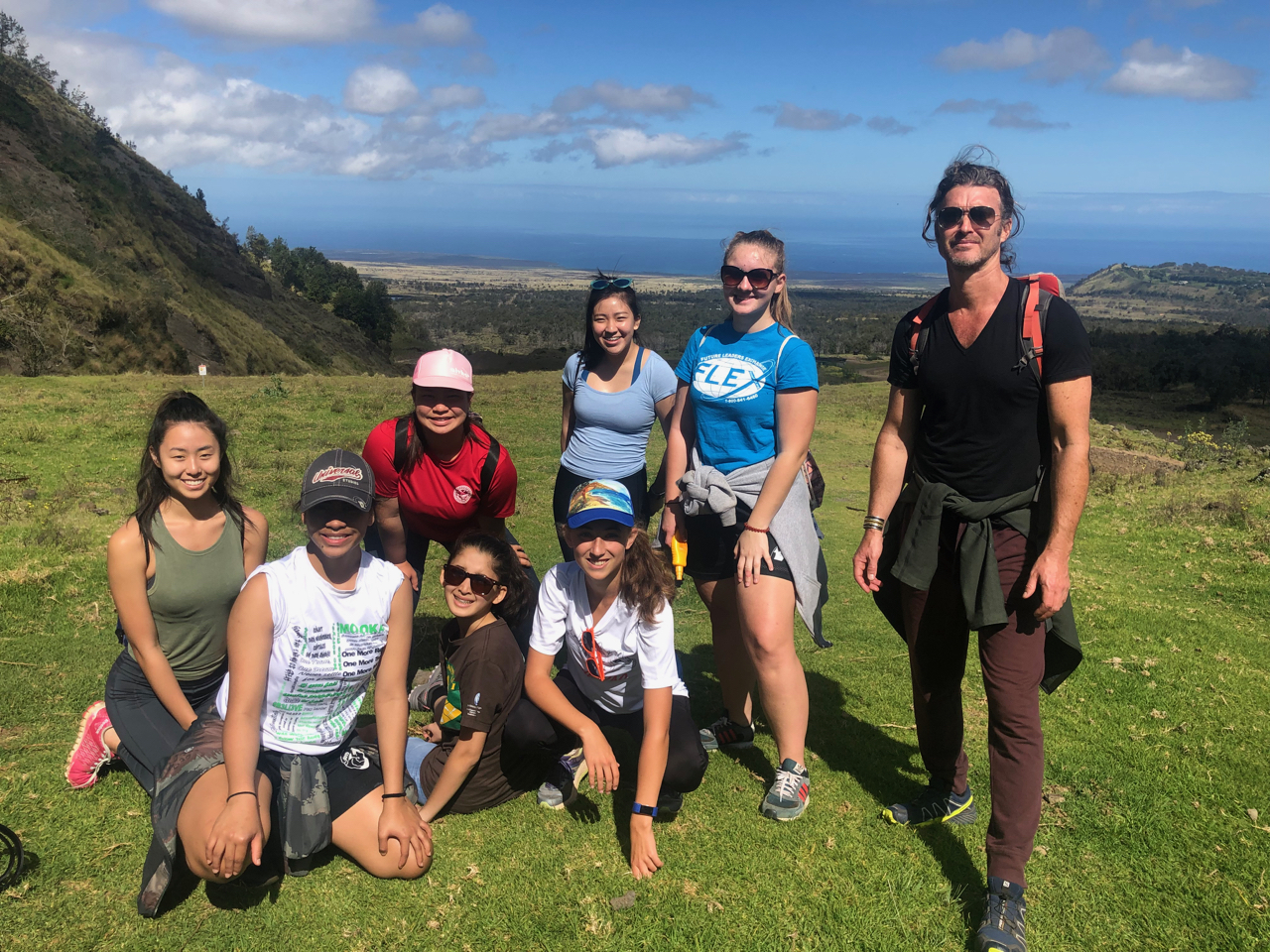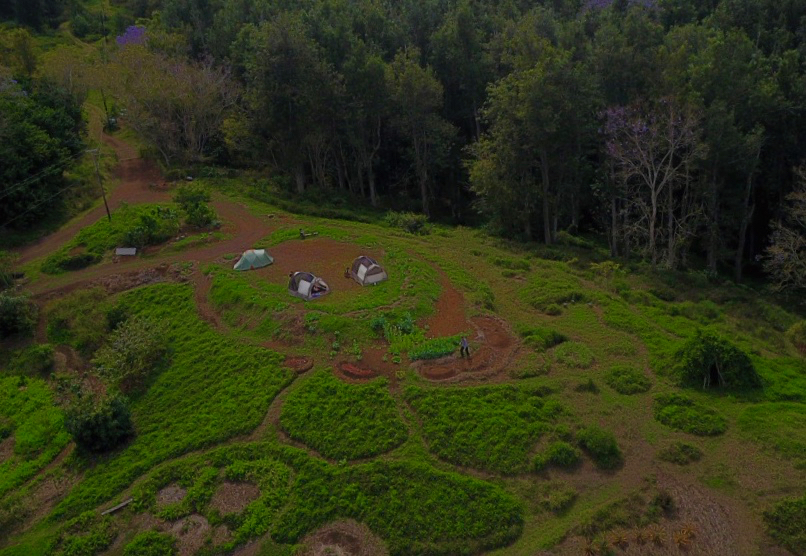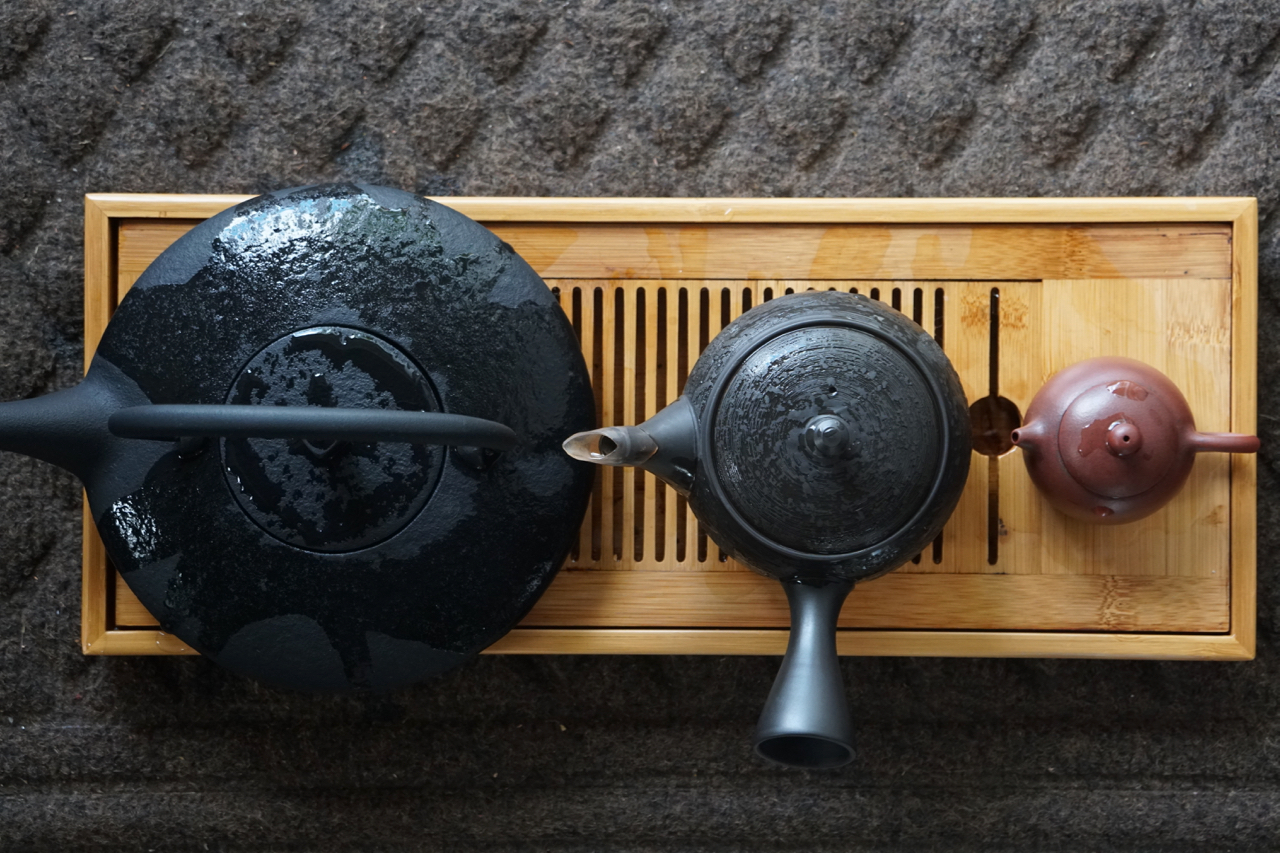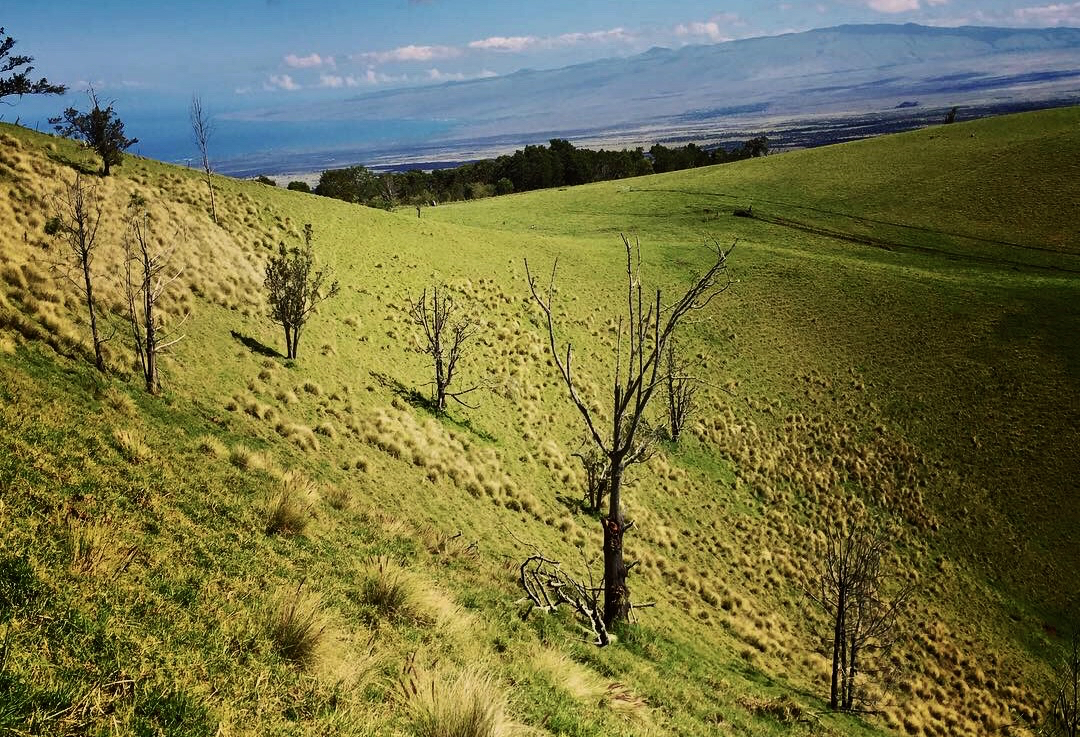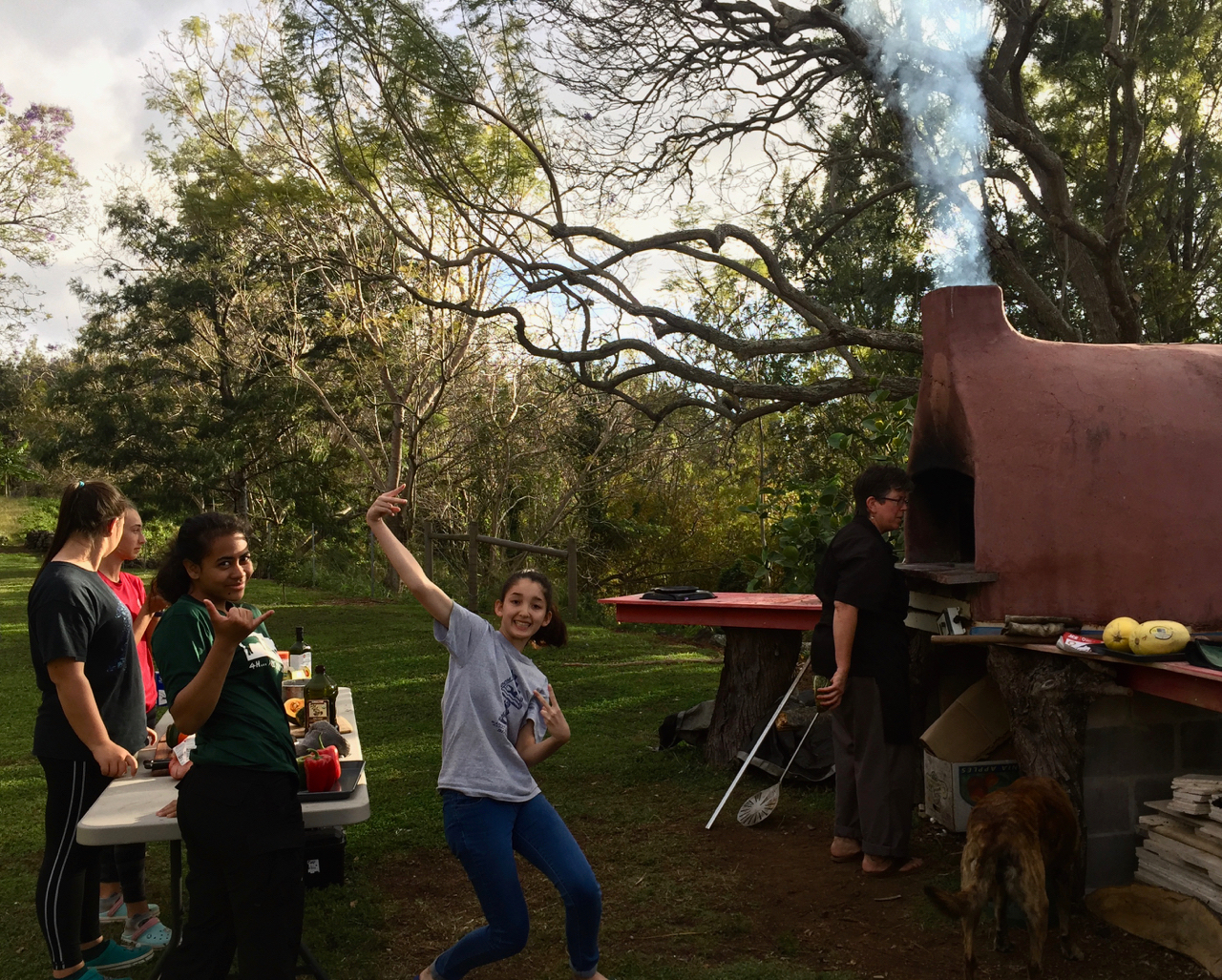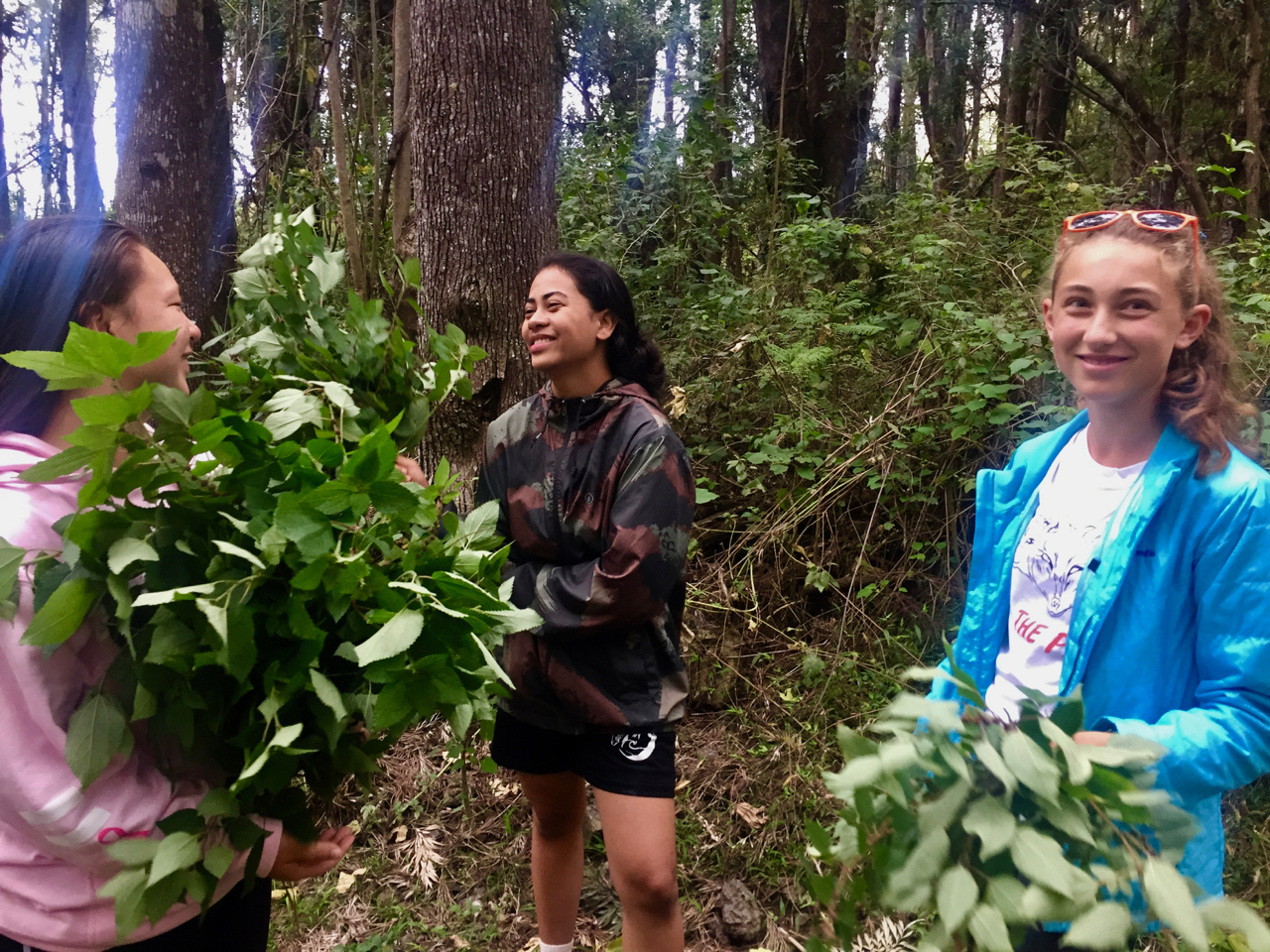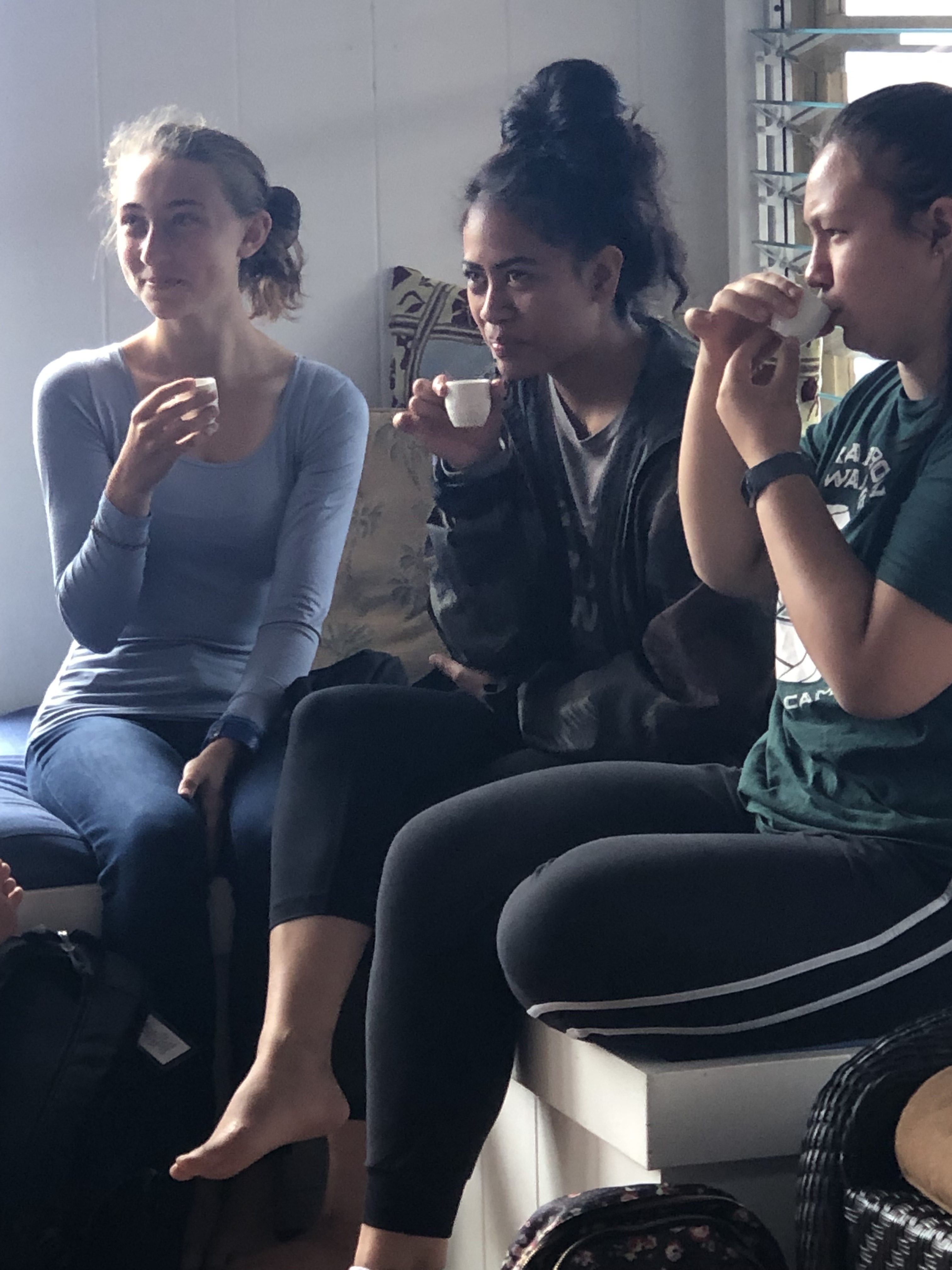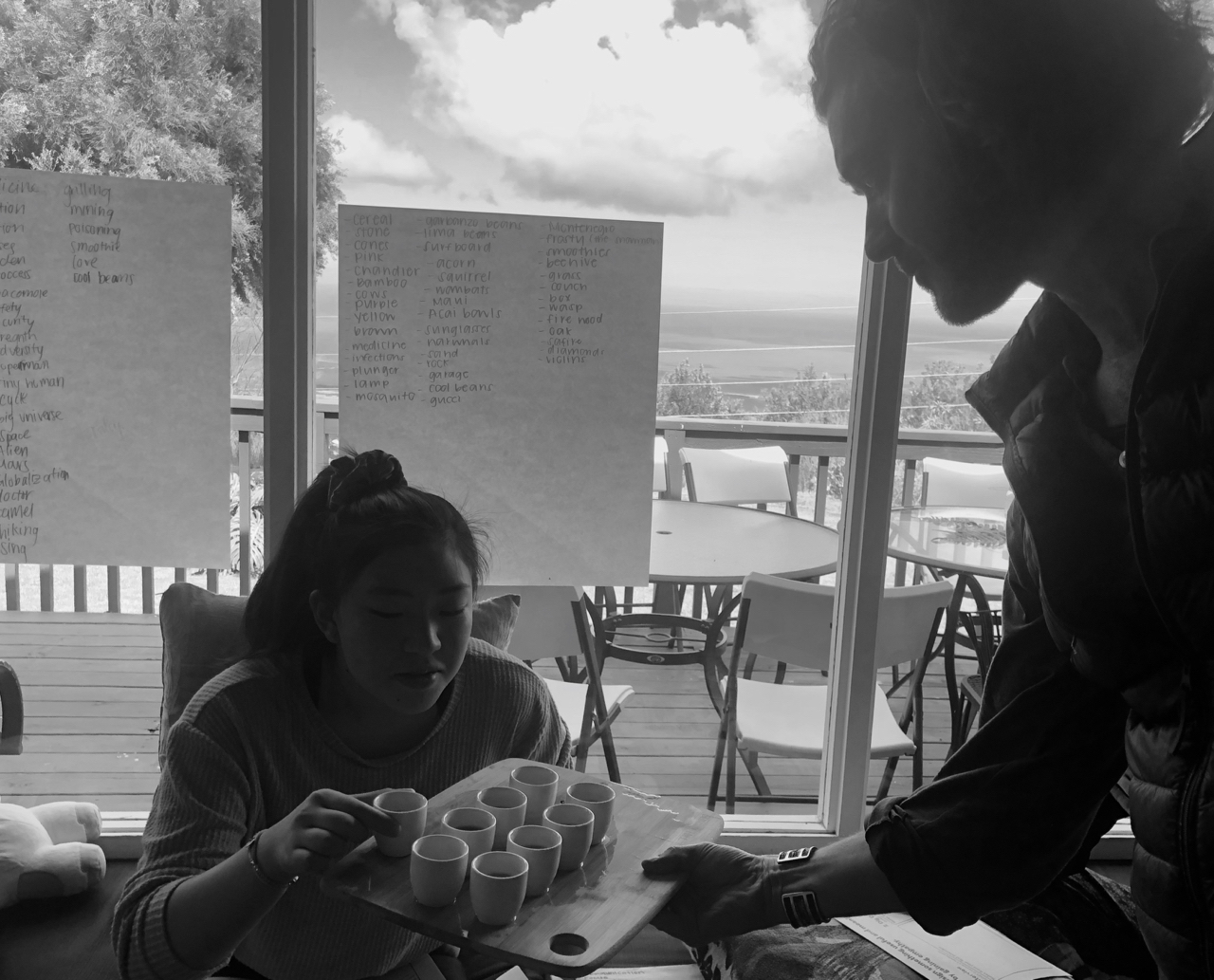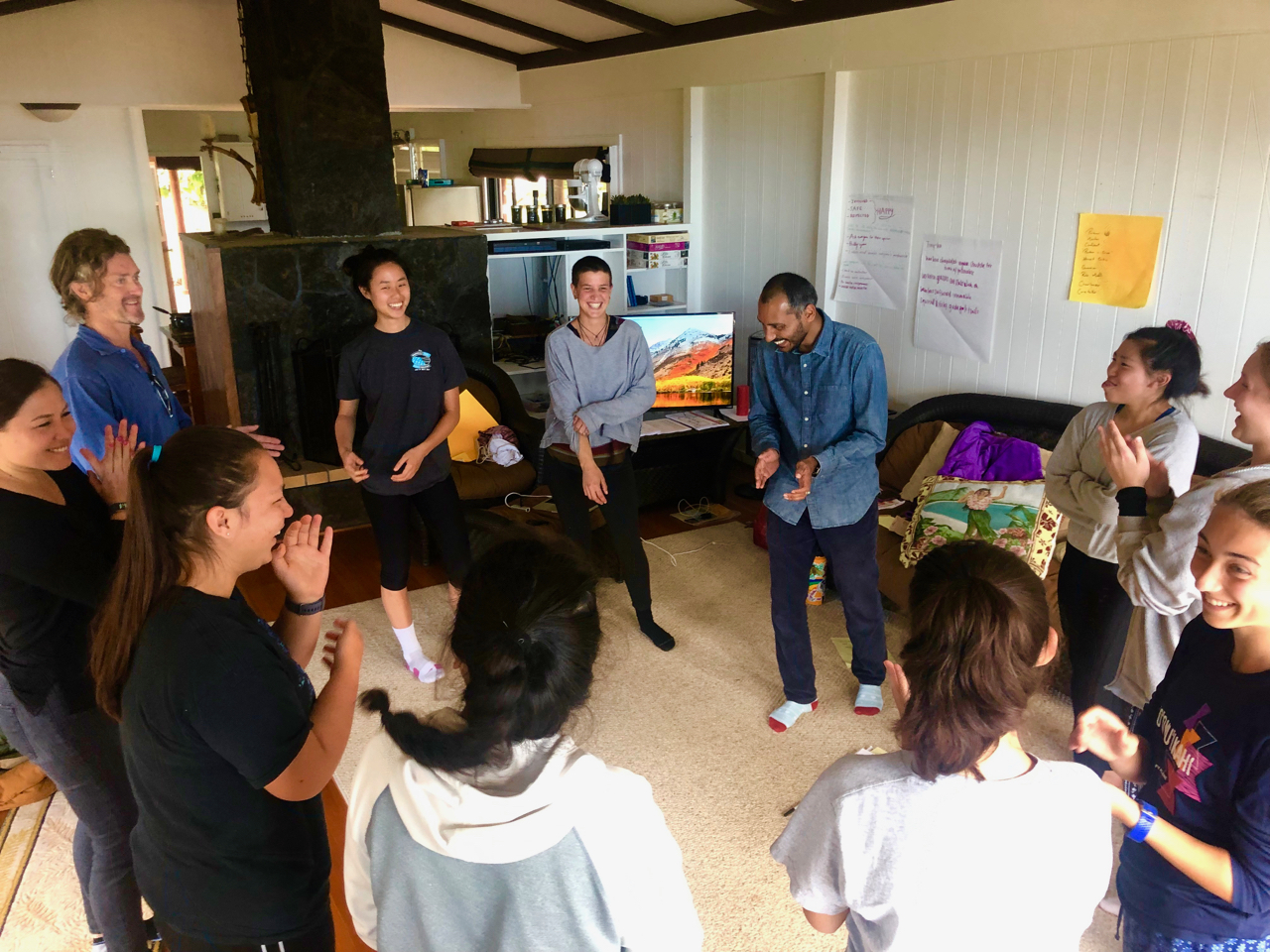When, a few years ago, I left northwestern Yunnan to join my wife Julie and live here in Hawaii, there were concerns that I’d somehow be removed from what had been my base close to mountains and tea and of the wonderful effects that the two elements. A concern that a decade of unrivalled access to thin-aired wonder and culture, and that stimulant leaf that gives so much to each day, would be dimmed. Hawaii, and specifically Big Island, has its own narcotic charms with the trade winds, the black lava stains, and a micro-environments that rival any. It also can recall a cultural weave that in many ways mirrors so much of what I’d been immersed in, in the Himalayas.
Some of that dimming took place, being away from heights and the all-seeing leaf. I could no longer simply walk into the mountains and get utterly lost along caravan routes that spanned a thousand kilometres. I couldn’t simply step onto a flight for two hours to reach one of tea’s great origins and tuck into hours’ long sessions of tea sipping. Though, there is some very decent tea here, and there are some mountains, it is a different space with different memories. But, it is as vibrant and alive as any space there is…away as it is from human’s overly controlling touch. And it is here that we build the Akahiao program, with all of our collective, and accumulated thoughts and narratives passed on.
So, the adaptation began (and continues in earnest). Apart from trips back every year to the Himalayas, longings, and the inevitable journeys back to source teas in southern Yunnan, there has been a gradual immersion deeper into the elements here…without relinquishing anything from years’ past.
One such element has been my wife, Julie’s, slow, methodical formation of the Akahiao Nature Institute. A dedicated initiative built upon the old (but often ignored) ideal that we all need more time outside of walls, under the skies and amidst the breath of the wind to engage with, and understand, why Nature matters. Theories aside, tangible engagement with Nature is the most visceral way to create a relationship with her. From this relationship, a care develops.
Akahi/Ekahi signifies ‘One’, and Ao refers variously to ‘world’, ‘cloud’, or ‘realm’. The resultant philosophy is made clearer with the name Akahiao, or “One Realm” which helps direct a vision and effort embarked upon that is shared for a future realm.
Julie and I, along with some skilled and authentic stewards and carers have put together our first outdoor programming for camps. Food from our permaculture garden nurtured by Antonio, Paiden, and Nicole and prepared by chef Lynn Sheehan infuses so much of the idea of ‘local’ into our programs. Christine Young infused the girls’ minds with the use of natural predators (as opposed to ferocious pesticides) and balance to deal with infestations. Camping outdoors, work in the garden, and treks, allow for a consistent immersion and simple being in the environments we wish to be a part of. Akahiao is about an entwining with the land, and with each other and finding our place.
My twice daily tea times, serving tea to the participants, allows me to imbue some of that wonderful Asian tradition of the ‘offering’. Tea times are times, like those brilliant tea houses of Yunnan, where anything can be discussed…or nothing can be discussed. It is a time for reflection, for engagement, and solitude. My own role is to create outdoor programming, and perform the modest but vital tea session merging that not so distant life of mine in the mountains to an island.
Our last group of incredible young women fully understood the tea sessions and what they meant beyond the simple stimulant kick. They also, vitally, left us with the impression that there is much room for this kind of immersive and cooperative program where we live ‘with’ and ‘within’ rather than on top of, and dominating.
And so, onwards and gently, gently we go…and writing this as I prep for another immersion entirely. Back to Nepal’s Himalayas for 40 days. This time though, there is a living vessel to bring back that wisdom to, and weave in.

